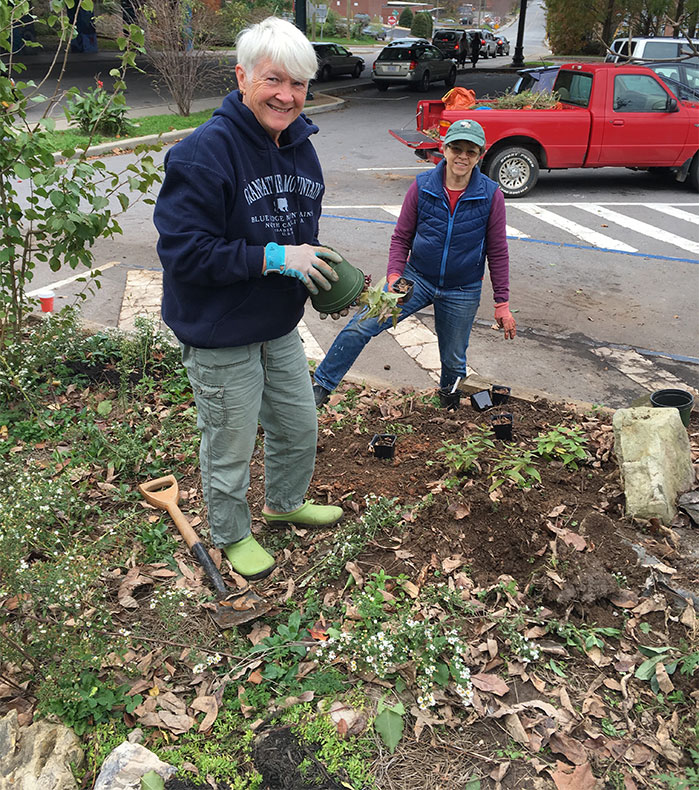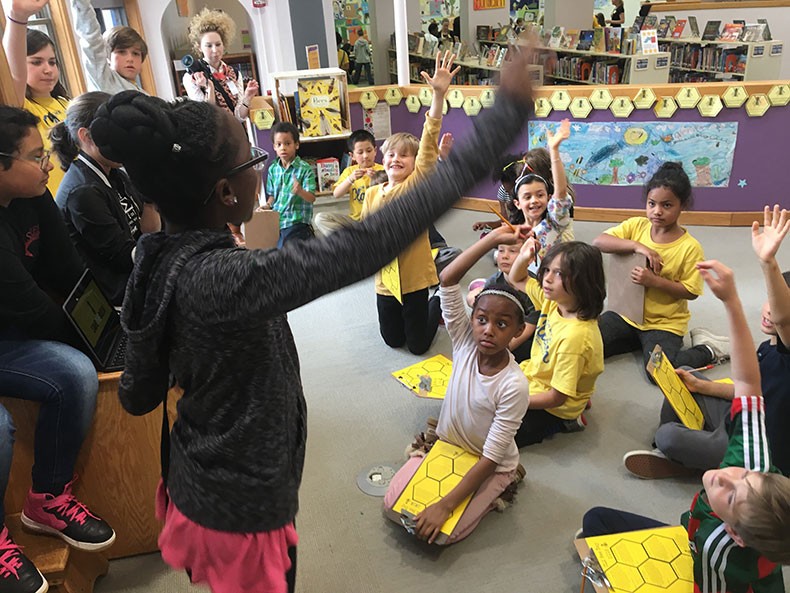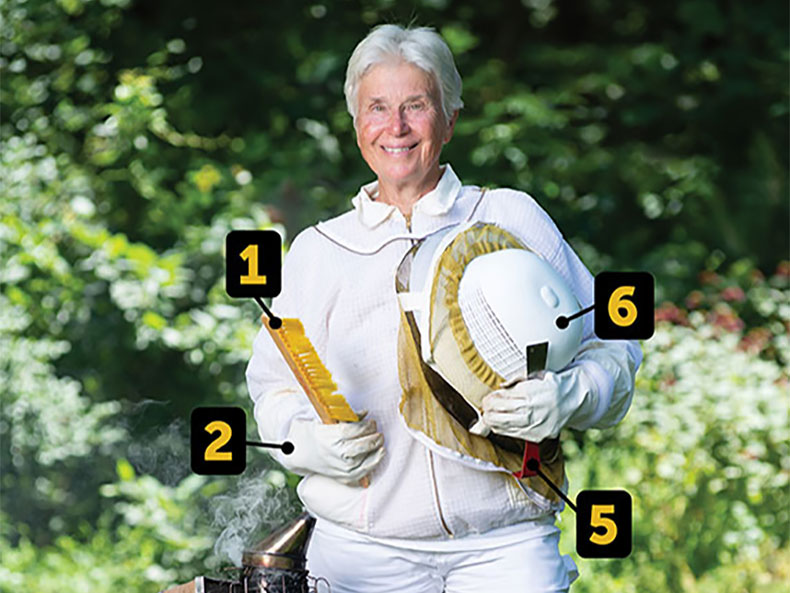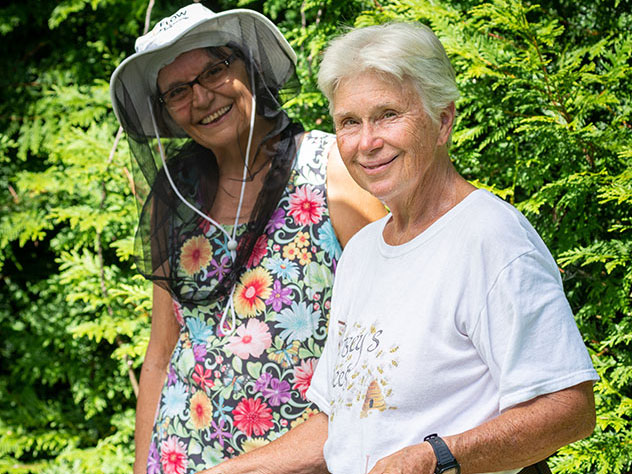‘Bee Cities’ are Making the World Safer for Pollinators
National project promotes native flowers, shrubs and trees
By Greta BurroughsThe students at Claxton Elementary School (Asheville, North Carolina) wore black and yellow, learned about pollination and celebrated honeybees during its annual Bee Day celebration. Photo courtesy of Amy Brown/Xerces Society.
Many populations of native bees, butterflies, moths, beetles, hummingbirds and other pollinators are disappearing due to overuse of pesticides, habitat loss due to agriculture and development, and changes in the climate.

Volunteers Kristina Pontin and Florrie Funk maintain Rosetta’s Garden, a pollinator garden in downtown Asheville, North Carolina. Photo courtesy of Phyllis Stiles/Xerces Society.
Bee Cities are doing their part to make a difference. Their goal is to make the world safer for pollinators—one city and campus at a time.
Bee City USA
Phyllis Stiles personally witnessed the decline of honeybees as she tried her hand at beekeeping in Asheville During this time, she also became aware of the vital role native pollinators play in the world.
“A light went on; the pollinators were in trouble and something needed to be done,” Phyllis recalls.
She and some friends came up with a plan and started Bee City USA (beecityusa.org). The project launched in 2012 with Asheville as the inaugural haven for pollinators.
Through the program, affiliate Bee Cities across the country incorporate native flowers, shrubs and trees into their urban landscaping to encourage beneficial insects to make a home among the pollinator gardens.
Visit beecityusa.org to find a Bee City near you. Plan a visit and learn all sorts of things about landscaping with pollinators in mind.
Learn even more about bees!
From a bee safety gear guide to our top 10 tips to get your own hives up and running, here are a few other articles about this important insect.
About the Author
Freelance writer Greta Burroughs can usually be found typing madly away at her home in South Carolina, where she resides with her husband and three dogs.-
Share this story:





